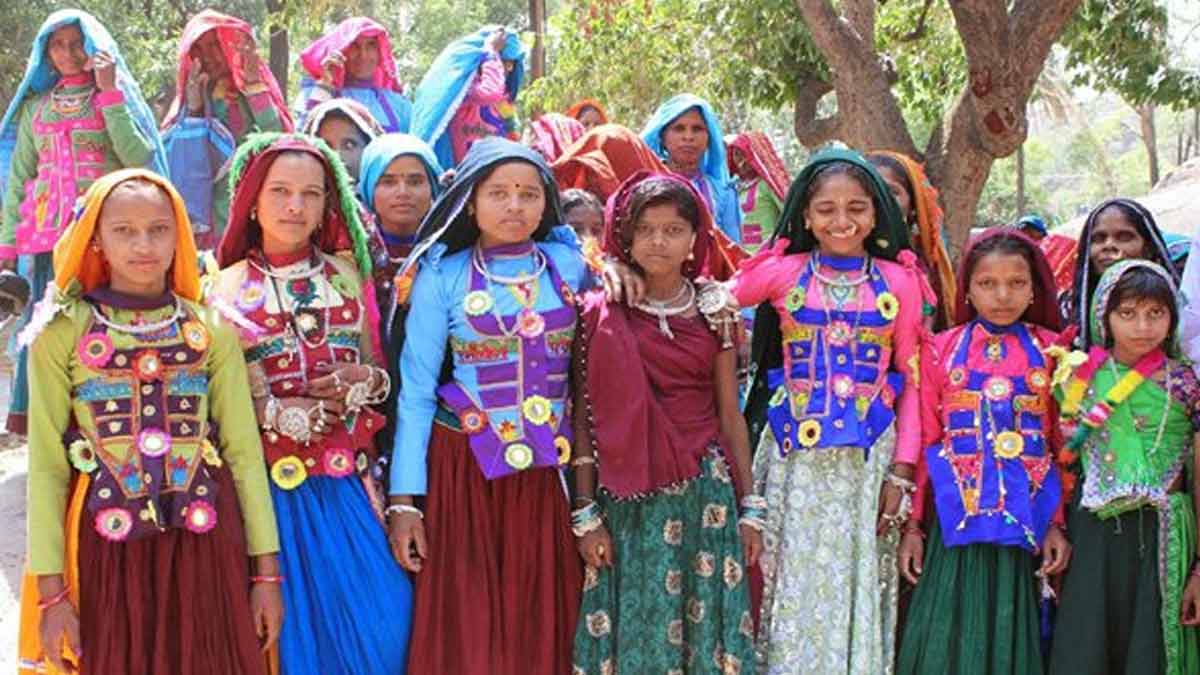
Since time immemorial we have heard stories of oppressions against women. Despite the fact that much has changed over the years and women have eventually gained much in the name of freedom, many women continue to battle for equality. However, a tribal community in Rajasthan is already living in the future, with women retaining a higher status. But this isn't the only thing that sets them apart. Another aspect that surprised us is that marriage is a strange concept to them, and they have been cohabiting in live-in relationships outside of marriage since time immemorial.
In the northwestern state of Rajasthan, the members of an indigenous tribe: Garasia tribe have a norm of couples living in live-in relationships outside wedlock. This tradition has been in practice for 1000s of years. And unlike the rest of India, marriage is not the norm there. Rather, live-in is the most common style of living.
In a report published by Scoopwhoop, they said that they visited the village in 2016 and saw the marriage of a 70-year-old man named Naniya Garasia and his 60-year-old live-in partner Kaali. On the same day, his three sons married their live-in partners. They had been living with partners for years, and all of their children were born outside of marriage. This is a modern practice that may take decades for the majority of India to embrace as the norm.

In a report published by Al Jazeera, Shahnawaz Akhtar writes about tribes' age-old practice called: dapa. In this, partners often live together for years and even have children before getting married. Marriage is only an option for them if they have earned and saved enough money to maintain and support their families, which might take decades for the Garasia, whose major source of income is farming and everyday labour. The best thing, as Akhtar points out, is that it is a perfectly accepted practise free of discrimination and gender-based prejudice, which is a marvel in a patriarchal and rigidly conventional country like ours.

In addition, the tribe has a ritual in which teenage children meet and befriend their preferred partner at a "two-day courtship fair" conducted in parts of Gujarat and Rajasthan. They then elope and return to live together, without any need or worry of marriage. Also, before the pair begins living together, the boy's family pays some amount of money to the bride's family when they return.
Not only that, but when the partners return, the groom's family pays for the entire wedding, and the rites are also performed at the groom's home.
However, if the partners no longer wish to live together and the woman wishes to find a new live-in partner at another fair, she is then expected to pay a higher price to the woman’s former partner.
Don't miss: This Tribal Girl Has Dared To Open A Medical Store In Maoist-Infested Area
In a video shared by Tripoto, when their team visited a Garasia Tribe village, they met women dressed in vibrant colours and wearing stunning Rajasthani jewellery. While the women spoke openly, the men peeked shyly out of their homes. This was a unique thing to witness, especially in Rajasthan, where patriarchal practices are still prevalent.
In this village with empowered women, women have the freedom to marry whoever they want, wear what they want, and divorce their husbands if they are unhappy.
Don't miss- Bridal Fashion: Take Inspo From These 5 Gorgeous Kundan Jewellery Sets
Often considered a backward community, the Garasia Tribe seems more progressive in many ways. Although their rituals may appear unusual, the Garasia tribe's traditions have resulted in fewer dowry deaths and rapes in their community.
According to social scientist Rajiv Gupta, "their culture believes in the 'the right to choose and the right to reject'. They do not find the modern society’s marriage system worthy, as it brings with it several impositions, especially on women".
What do you think about the Garasia Tribe, their empowered women and unusual traditions? Do share your thoughts with us by commenting on our Facebook or Instagram pages.
For more such stories, stay tuned to HerZindagi!
Also watch this video
Herzindagi video
Our aim is to provide accurate, safe and expert verified information through our articles and social media handles. The remedies, advice and tips mentioned here are for general information only. Please consult your expert before trying any kind of health, beauty, life hacks or astrology related tips. For any feedback or complaint, contact us at [email protected].